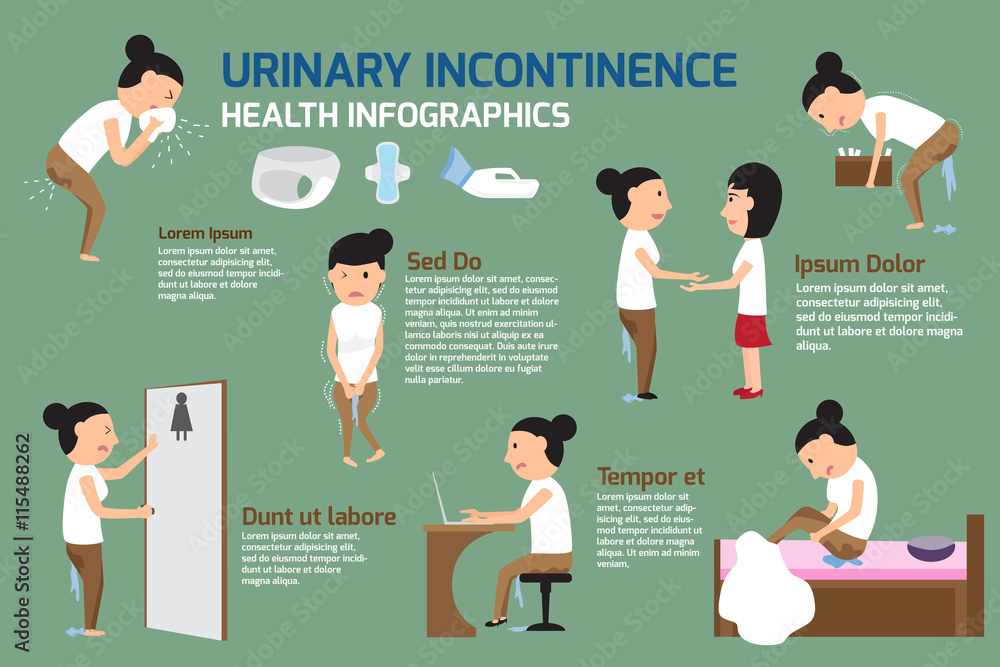
August 27, 2024
Getting Past The Psychological Problem Of Incontinence Nationwide Organization For Continence
Resolving The Psychological Negative Effects Of Incontinence Urinary system urinary incontinence, a common problem among women, entails the involuntary leak of urine. This concern, while not uncommon, frequently continues to be under-addressed because of misconceptions and the topic's sensitive nature. The primary kinds of female urinary incontinence include stress and anxiety urinary incontinence, impulse incontinence, overflow urinary incontinence, and blended urinary incontinence, which is a combination of stress and anxiety and advise incontinence. The option of treatment is highly private and must be made in appointment with a doctor, thinking about the person's specific condition, way of living, and preferences. Nothing contrasts to the deep link and susceptability in between you and your partner. Nevertheless, when urinary system incontinence gets in the formula, you may experience lots of unanticipated difficulties that influence your physical convenience and psychological affection.- A. Throughout your doctor's go to for urinary incontinence, a detailed spoken background will certainly be taken and, depending on kind of urinary system incontinence and symptoms defined, a physical examination and urinalysis might be performed.
- Researches reveal that targeted workouts like Kegels can significantly improve muscular tissue strength and endurance.
- Incontinence-related support system and on-line areas are additionally instrumental in normalising conversations about the condition and reducing feelings of isolation and shame.
Sorts Of Urinary Incontinence
As a carer, work out how much warning time Informative post there is (if any type of) and if the individual you are taking care of understands the issue. This will certainly help you understand when to address the individual's toileting needs prior to troubles emerge. Use of PMC is free, but should adhere to the terms of the Copyright Notice on the PMC website.Depression - World Health Organization (WHO)
Depression.
Posted: Tue, 17 Dec 2019 22:11:04 GMT [source]
Looking For Family Members Support
In time, we hope that idea becomes a little less challenging, and the world can become more caring. As always, we invite your thoughts and remarks-- at Bladder & Digestive Tract Neighborhood we're committed to supporting your medical care journey, whatever course that takes. If you have an experience you want to share, please email us at [email safeguarded] At Bladder & Digestive tract Area we aim to support you to advocate on your own, which suggests assisting you discover similar individuals, health advice, and details.Psychological Effect
The word 'unreasonable' in the above meaning is essential, as it indicates that the ideas are unjustified. Besides, if you deal with a bladder or digestive tract condition it's not your fault, and with 14 million individuals in UK living with a bladder trouble, you're certainly not alone. As we age, our bodies undertake numerous changes, and one typical problem that lots of seniors face is incontinence. While it could not be a comfy subject to talk about, addressing elderly urinary incontinence with sensitivity and understanding is critical for maintaining the individual's self-respect and lifestyle. Both an undesirable body mass index (BMI) and eating foods that trigger constipation can result in urinary incontinence. Specific foods like chocolate, red meats, white rice and breads can cause irregular bowel movements, while high levels of caffeine and alcohol can create extra pee. Implementing practical strategies to maintain these difficulties controlled can help you continue your daily tasks with convenience and dignity. Currently, there are no standardised diagnostic criteriaavailable for urinary incontinence anxiousness. Nevertheless, a doctor may diagnose incontinenceanxiety based upon the presence of anxiety signs and symptoms that are known tosignificantly disrupt a person's daily life and activities. Thesesymptoms may consist of overwhelming anxiety of urinary incontinence in public scenarios, evasion of social tasks or locations as a result of the anxiety of urinary incontinence, and anegative effect on social and work relationships. Think about including pelvic flooring workouts right into your day-to-day regimen to improve bowel and bladder control. The vital point to keep in mind is that our minds can be learnt a much more positive direction-- what we tell ourselves is very important. If however, we approve and like our bodies as they are, however they operate, that feeling of pity can be regulated and self-regard rebuilt. This is a lot easier stated than done, yet if what you're really feeling is having an unfavorable impact on daily life, it may deserve speaking to a psychological health and wellness expert to assist you refine things. Tape your fluid intake and toileting pattern over the course of three to 7 days in a bladder diary.How do you deal with severe urinary incontinence?
bladder when to load and when
to clear. Additionally, restriction fluid intake after 6 p.m. to minimize night-time nullifying and incontinence. Target complete liquid intake to 40 & #x 2013; 60 ounces each day. Emotional urinary incontinence is a disorder of psychological control complying with brain damage. It describes the increased tendency to weep or less frequently laugh, disproportionate to the underlying mood. You might have the ability to just change your day-to-day dietary routines to regain control of your bladder. You might require to reduce on or stay clear of alcohol, caffeine or acidic foods. These workouts, called Kegels, reinforce the stomach muscles that aid control peeing. Take Preventative Measures.Seek Treatment For Your Symptoms.Start Doing Pelvic Flooring Exercises.Practice Yoga.Maintain Social Links and Tasks. Urinary incontinence can take place for numerous factors, consisting of urinary tract infections, genital infection or inflammation, or irregularity. Some medicines can


Social Links